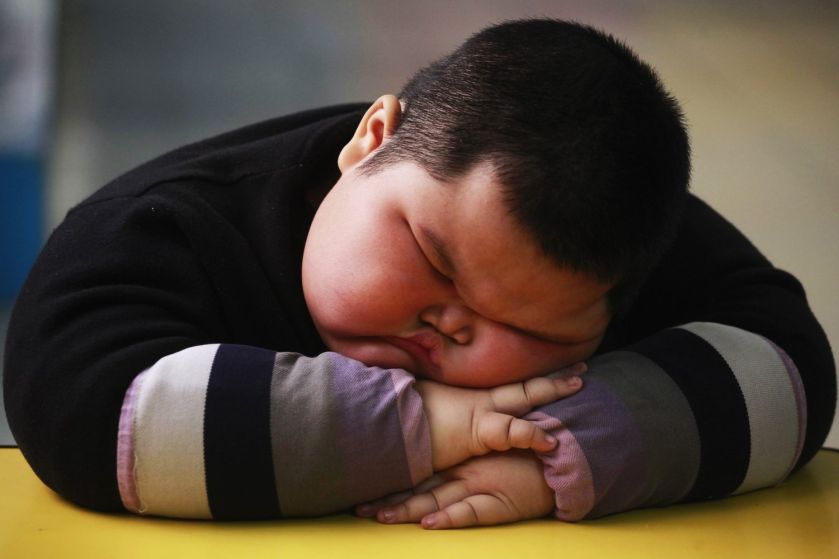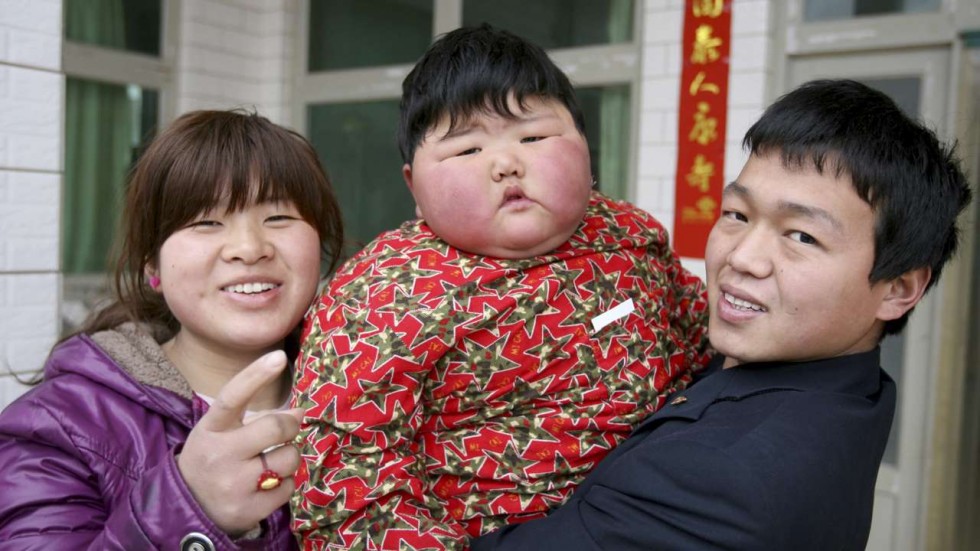The results of a new study suggest migrant children have lower obesity rates than kids raised in local urban families because “their grandparents are not around to overfeed them.”
The claim is based on the assumption that when migrant children move to a new city with their parents, their grandparents often remain in the family’s original hometown, and thus have little influence on childcare.
Researchers at the University of Birmingham based their findings on interviews with parents, grandparents and teachers at schools in Guangzhou. The study, published in PLOS ONE medical journal on May 17, also found that migrant children generally have less family-induced pressure to achieve academically and fewer opportunities to eat unhealthy snacks, which may further contribute to their lower obesity rates.
This is the second study conducted by researchers at the University of Birmingham in the last two years that analyzes the role of grandparents in childhood obesity in China.
The first, published in the International Journal of Behavioral Nutrition and Physical Activity in 2015, concluded that “children who lived with two or more grandparents in the household were more likely to be overweight/obese than children who did not live with any grandparent.”
Specifically, the study showed that Chinese children who live with their grandparents eat two more servings of junk food each week on average.

“Childhood obesity is a global public health crisis – particularly in China – yet the health of children who migrate with their parents to major Chinese cities has rarely been explored,” Dr. Bai Li of the University of Birmingham is quoted as saying.
She claims an important step towards preventing the rise of obesity in migrant children is understanding the perceptions of parents, grandparents and teachers on the causes of childhood obesity.
Older generations in China, for example, often view a plump child as a symbol of health and success, and therefore tend to overfeed them.
Yet with 15 percent of Chinese children and adolescents aged 7-18 now classified as overweight or obese, traditional perceptions of what constitutes health and success may need to be reassessed.

Previous research conducted by Birmingham and Guangzhou scholars found the prevalence of obesity in resident children in Guangzhou to be 20 percent compared with 14.3 percent in migrant children.
But Dr. Li warns “recent trends suggest a steeper increase among youngsters coming to the cities from rural areas.”
She recommends “future interventions for local communities should include education for grandparents, enforcement of regulations limiting illegal food traders outside schools and education policies that rebalance academic focus with increased physical activity.”
READ MORE: How Fat Camps Are Tackling China's Obesity Epidemic





















0 User Comments